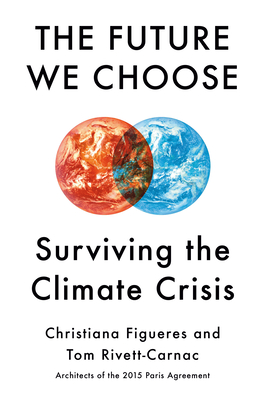
Subtitled Surviving the Climate Crisis, this straightforward, easy to read book has been hailed by many as inspiring and essential, but I found it underwhelming and lacking in new insights beyond what we've heard many times before.
The authors are good at stating the case for the need to take climate change seriously and discussing the emotional effects that climate change have on people, primarily grief for a lost way of life. However, beyond that, the book is very disappointing.
The unremitting exhortation to retain optimism seems not to be backed up with enough genuine ideas for action. And a lot of people who are grieving because of climate change may well be emotionally beyond being able to summon stubborn optimism.
The book gives two versions of possible 2050s, one where we have not made any changes to our lifestyle and everything is grim and horrible and the other where we have made enough changes to avoid the worst of the climate crisis and everything is more or less okay, though not without its difficulties. However, one thing that struck me about the 'positive' possible 2050 was that it included features such as smart trains that would scan you as you board and then bill you for the cost of your trip when you leave the train! Sounds pretty dystopian in a Big Brother type of way to me.
After presenting the two versions of possible year 2050s, the book offers a well written but dull set of things we should do to prevent the climate crisis getting out of hand by 2050. But there was little new in this section, particularly for anyone who is relatively well versed on the issues. Also, all solutions were offered through the lens of what we can do by refiguring capitalism, with no thought that we may need an entirely new economic system. There is too much focus too on individual actions when we need to be looking at action from governments and corporations and even the individual actions suggested aren't new or thought provoking.
This book offers no new ideas and lacks any sense of urgency, which is ironic as we live in times when we are desperately in need of new ideas to address the most urgent issues we've ever faced - the climate crisis and the related biodiversity crisis.
The Future We Choose by Christiana Figueres and Tom Rivett-Carnac, published (2020) by Manilla Press
2 comments:
test
Test
Post a Comment